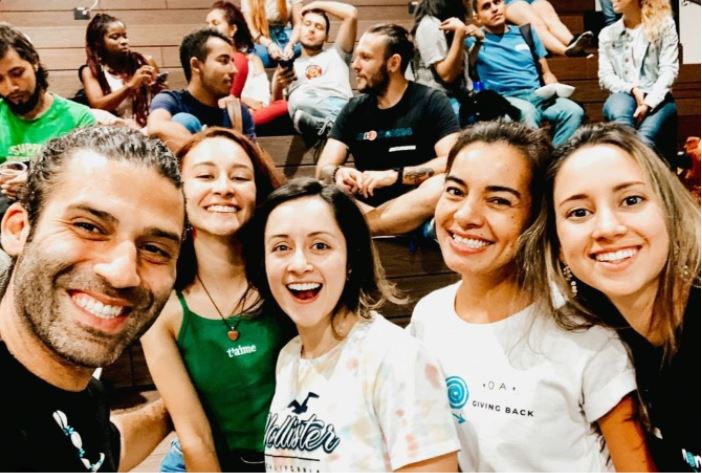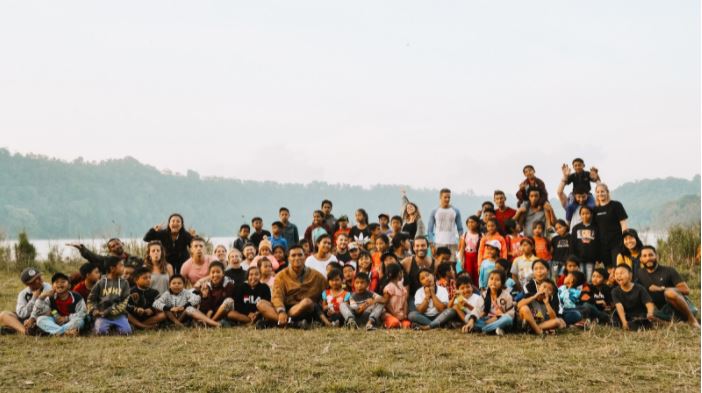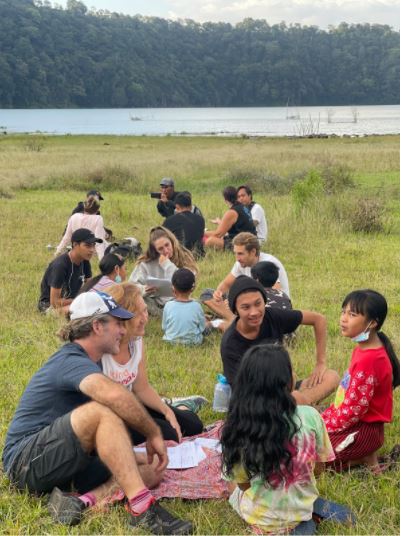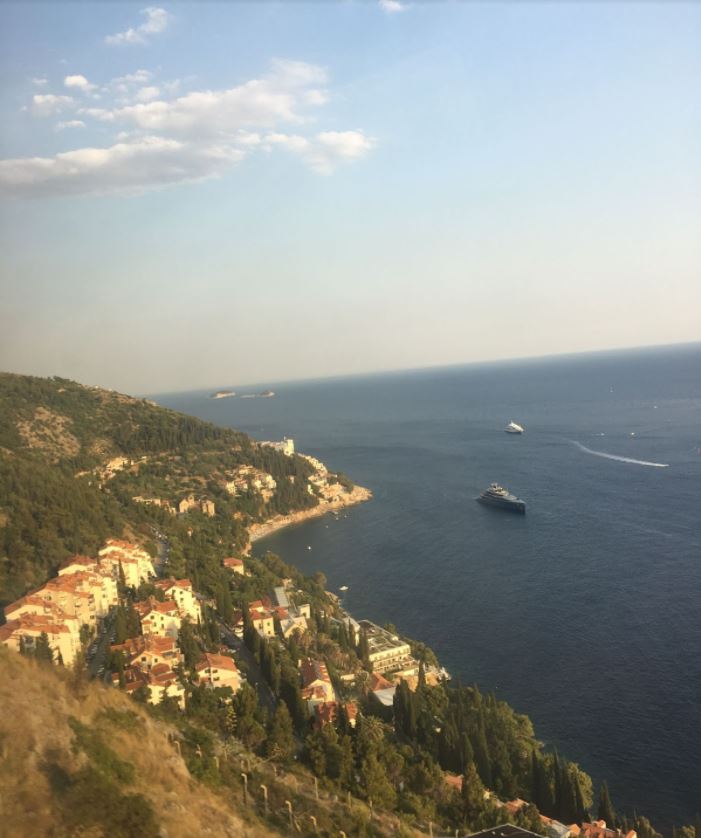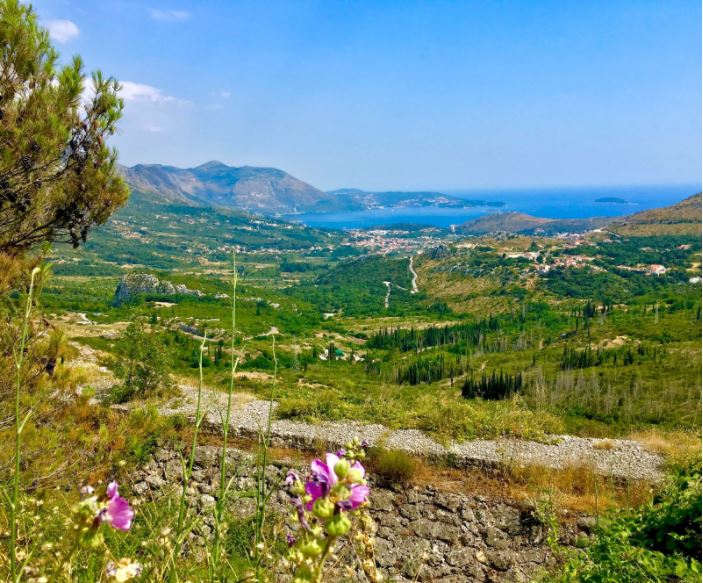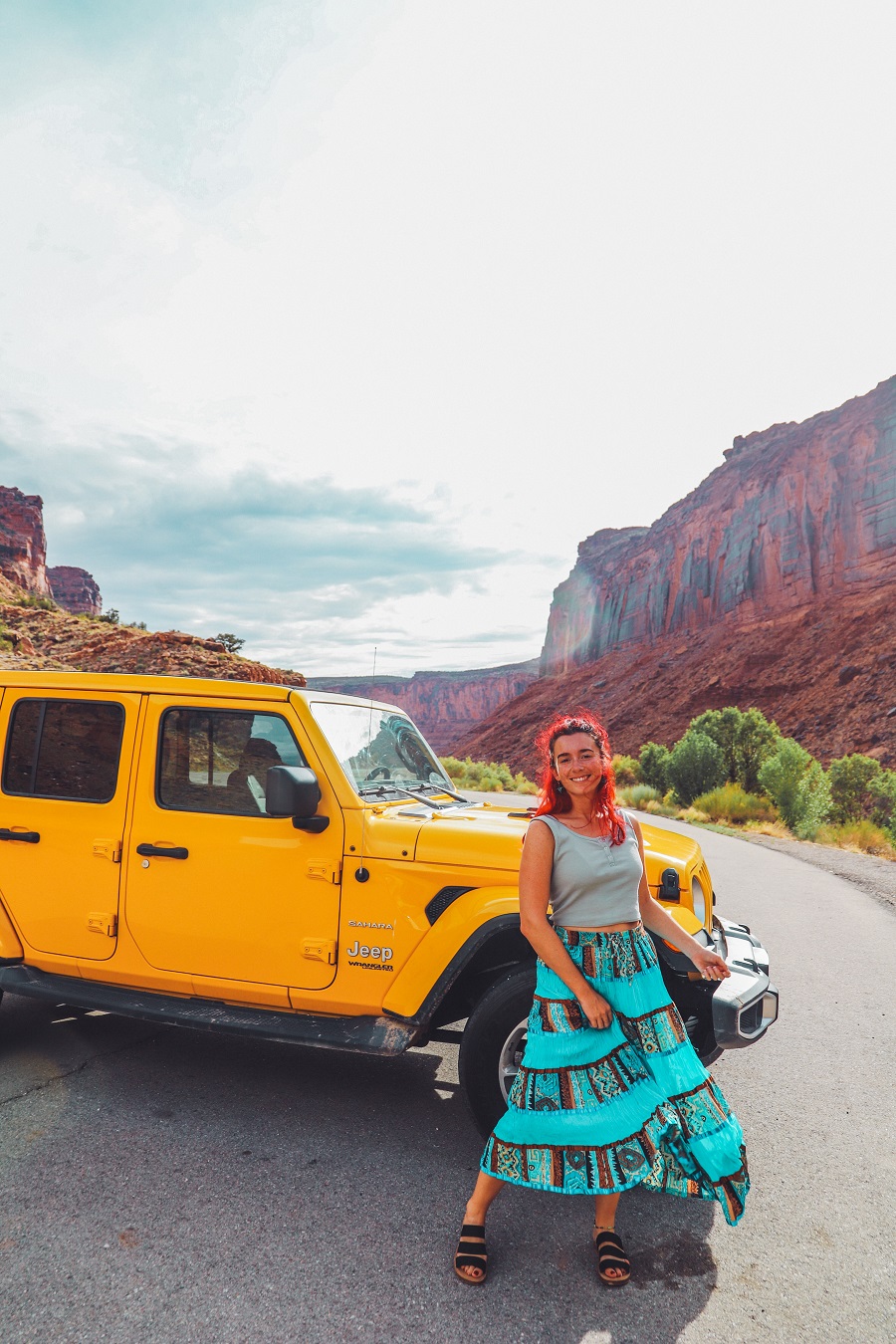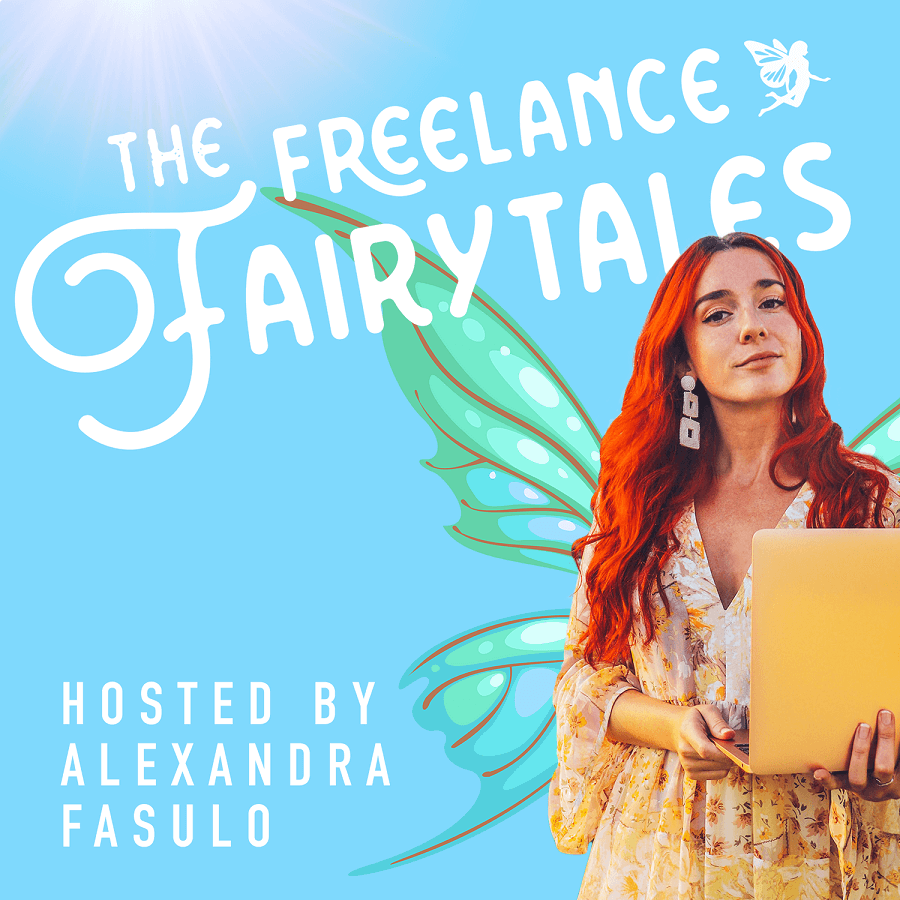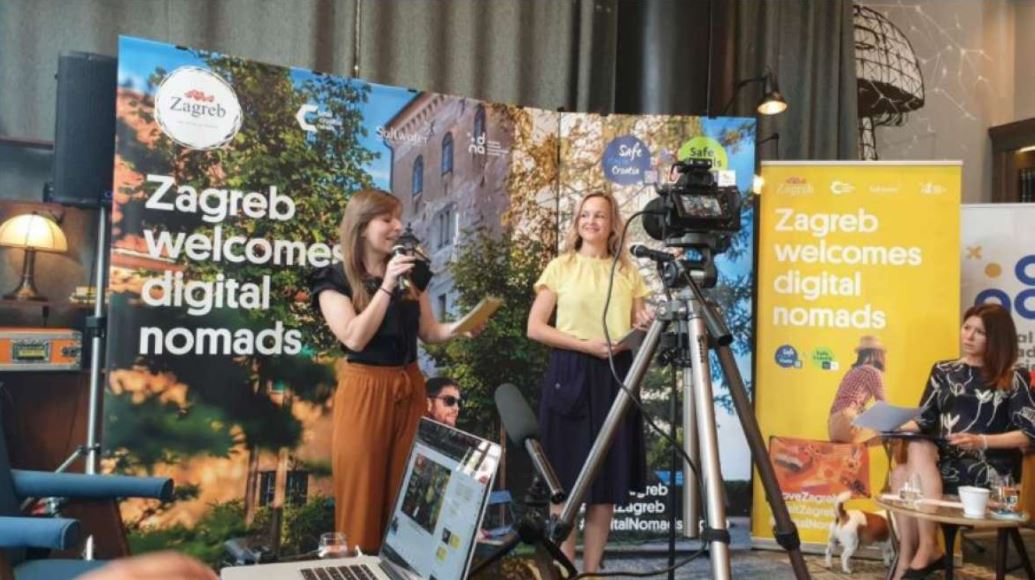Meet the Digital Nomad Week Speakers: Lily Bruns, Draper Startup House
November 10, 2021 - Less than a month until Digital Nomad Week, the virtual edition with 10,000 nomads expected to attend, and more than 100 speakers including TCN. Continuing our look at the keynote speakers, meet community builder Lily Bruns of Draper Startup House.
Lily is an international community builder and content marketer who helps startups tell their story. She is the Country Manager for Thailand at Draper Startup House and she's an avid advocate for digital nomad visas.
1. You are a keynote speaker at Digital Nomad Week in December. Tell us a little about DNW, why you decided to get involved, and what you will be talking about.
Olumide and I have known each other for a while due to our mutual interest in advocating for digital nomad visas. He knew me as a community connector thanks to my work with Draper Startup House, hosting Clubhouse communities, and he was on my panel at the Work + Travel Summit. When he asked if I would like to lend a hand with Nomad Week and help shape its direction, I was thrilled to jump in as an organizer and moderator. Most of my sessions will focus on policy, infrastructure and communities that enable digital nomads.
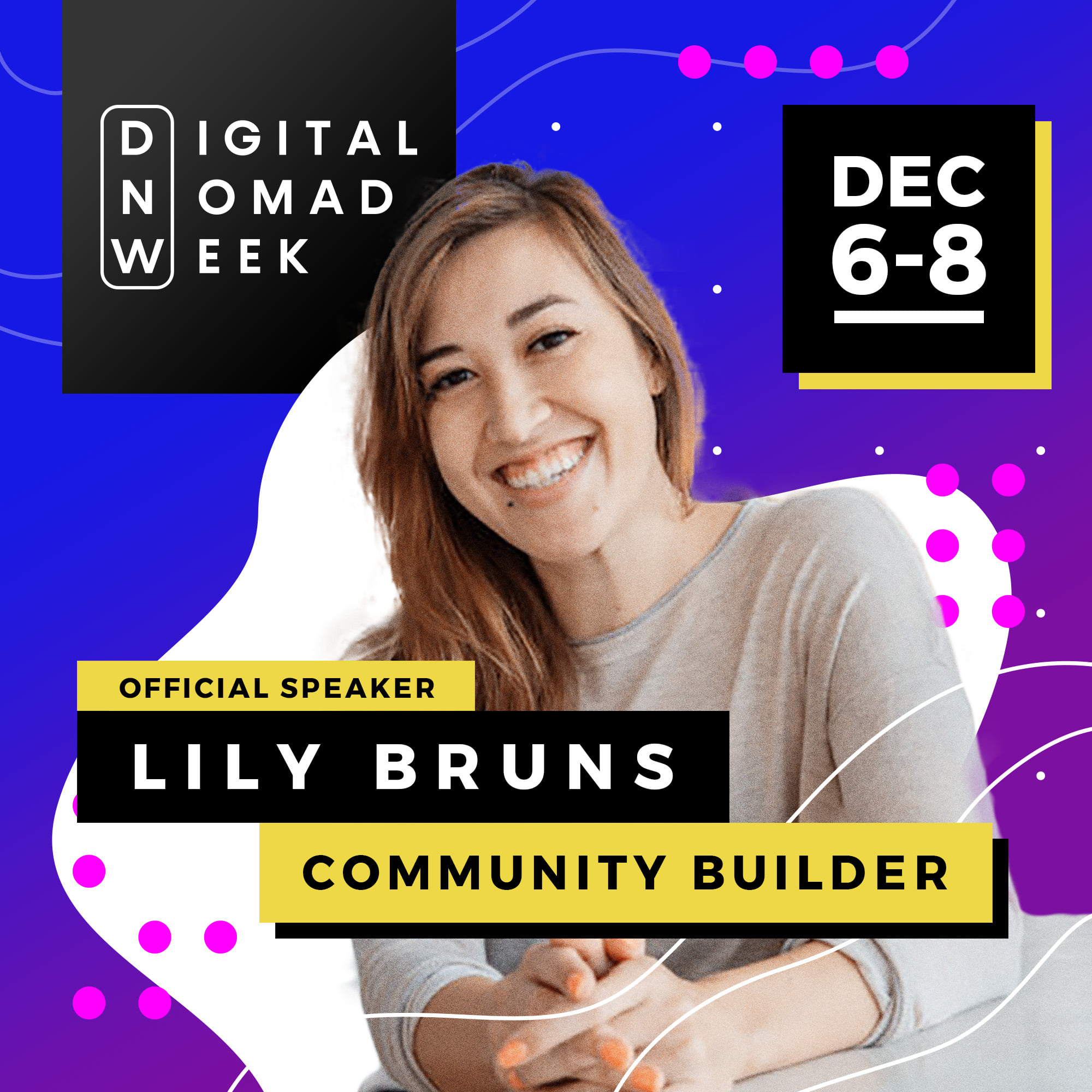
2. How does DNW rate on the nomad conference/festival calendar in your opinion in terms of size/importance?
Lots of similar events are strongly focused on helping newbie nomads join the movement, and I think DN Week will do a great job of this thanks to the wealth of workshops, but this conference is really a who's who of thought-leaders in the movement. People who don't just live the lifestyle, but are committed to shaping the future of the community, and it's always exciting to feel like you're part of creating something rather than just logging on to learn some new tips and tricks.
Since it's our first year, the jury's still out on what the numbers will be, but I know it's a guaranteed good time because so many of the panels are composed of friends and colleagues having fun and nerding out together. I think audiences appreciate authenticity and will value that more than some of the events that win out on hype and size.

3. The pandemic put an increased focus on the potential of remote work, but the trend has been building for some time. Where do you think all this will be in 5 years?
I never would have believed it pre-pandemic, but I think the dream of a "Nomad Passport" can really become a reality thanks to all the countries getting on board with the trends in global mobility! Before, we dreamed of just one country having a proper visa for digital nomads, but now the idea that we can create a Schengen-esque system where one application gets you entry to a network of remote-work friendly countries seems not just likely, but inevitable - and that's going to be GAME-CHANGING.
4. I would like to ask you about Croatia, as that is my primary focus, and I understand you recently visited Zagreb. Tell us a little about your experience of Zagreb and Croatia as a DN destination.
I really enjoyed Zagreb! I wish I had gotten to spend more time there. I adore European cities for their history, architecture, and walkability. Having previously spent some time in Split, a visit to Zagreb impressed me with Croatia's cultural diversity. There's a lot happening in a relatively small country, and that makes for a fun place to visit. Also, as confusing as it was, I loved that there were so few signs in English and that I was constantly perplexed at what was going on since I didn't know any words besides thank you. In Thailand where I live, because visitors often look different than the locals, you're always spoken to in English. Nobody assumed they ought to speak English to me in Croatia (except at the airport and hostel) which was kind of refreshing.

5. What is the perception of Croatia as a DN destination, and has it changed in the last 12 months? If yes, in what way?
When my, mostly American, friends were scrambling to bunker down somewhere during lockdown last year, I think Mexico and Croatia were basically the two options open to them, so I had a lot of friends pass through. I think this really opened people's eyes to the spectacular country that had been there all along, but was flying under the radar. Thanks to the nomad-friendly policies, I think Croatia has a good chance of attracting these types of visitors for years to come, but there's still not a lot known about the community.
6. You are a community builder. How would you assess the Croatian DN community at the moment. Can you give us a few quick wins to make it stronger?
More coworking spaces please! And places in general that nomads can go to find each other. Coming from Thailand where we have a strong cafe culture and it's very normal to buy a coffee and park with your laptop somewhere for a couple of hours, I was surprised at how hard it was to find places like that in Zagreb. While I noticed plenty of young folks out and about, if it weren't for staying at a Hostel (shoutout to Swanky Mint!) I wouldn't have known where to find my people. The community grows and connects itself when you give it hubs to gather around, so I would really increase the visibility and density of these, and work with local businesses and communities to maintain an active roster of events.
Editor's note: The TCN Guide and Map of Zagreb Co-Working Spaces for future reference.

7. You are installed as the Croatian Minister of Tourism. What are the next steps you would implement to develop Croatia's DN strategy?
Speak to the Ministers of Education and also Science and Technology! Digital nomads represent an attractive target group for tourism, but we're a community truly devoted to giving back. The easier it is for us to integrate, the more we do give back by teaching, training, starting businesses and more. We're entrepreneurs and explorers, and we represent some of the most educated and professionally privileged people on the planet, so we have a lot to give.
We also want to learn and understand the places and cultures we move through, so creating experiences and opportunities outside of the urban areas for digital nomads to immerse themselves should also be prioritized. When you travel a lot, many touristy places start looking the same, and the conveniences and amenities are nice, but you also want to get that sense of place and to dig deeper to make the most out of exploring. To me, it's all about exchanging culture, knowledge, and opportunities, not just spending dollars in exchange for photos and Instagram Likes - you know?
You can learn more about Lily Bruns, as well as connect via her official website.
To get your ticket for Digital Nomad Week, check out the event website.
For more news and features about digital nomads in Croatia, follow the dedicated TCN section.
Meet the Digital Nomad Week Speakers: Tarek Kholoussy, Nomads Giving Back
November 8, 2021 - Less than a month until Digital Nomad Week, the virtual edition with 10,000 nomads expected to attend, and more than 100 speakers including TCN. Continuing our look at the keynote speakers, meet a nomad giving back - Tarek Kholoussy.
Tarek is a social entrepreneur with a BSBA from Georgetown and an MBA with honors from New York University. He's founder of social enterprise called Nomads Giving Back! with the vision to inform, inspire and empower you to give back to the communities you call 'home away from home.' Its goal is to help solve the problem "I'd like to give back, but I don't know how" and serve as a bridge between foreigners and local communities through social causes. Tarek and our global tribe welcome anyone who believes in our vision of inspiring social impact to get involved and join the movement!
(Colombia Language Skillshare, 2020)
1. You are a keynote speaker at Digital Nomad Week in December. Tell us a little about DNW, why you decided to get involved, and what you will be talking about.
Olúmidé, the founder of Digital Nomad Week, is a good friend of mine. We met more than a couple of years ago; and from the moment we met, we realized that we share similar values and visions for the nomad movement. We both value community, skill sharing and making a positive difference in the local communities we live in.
I’ll be speaking on the topic of Digital Inclusivity and excited to share what my team and I are doing at Nomads Giving Back & Nomads Skillshare to help upskill local communities through professional training programs and fostering greater inclusivity through scholarship opportunities for those with less fortunate financial situations. We strive to empower global citizens and local communities to learn the skills they desire to live the lives they imagined.
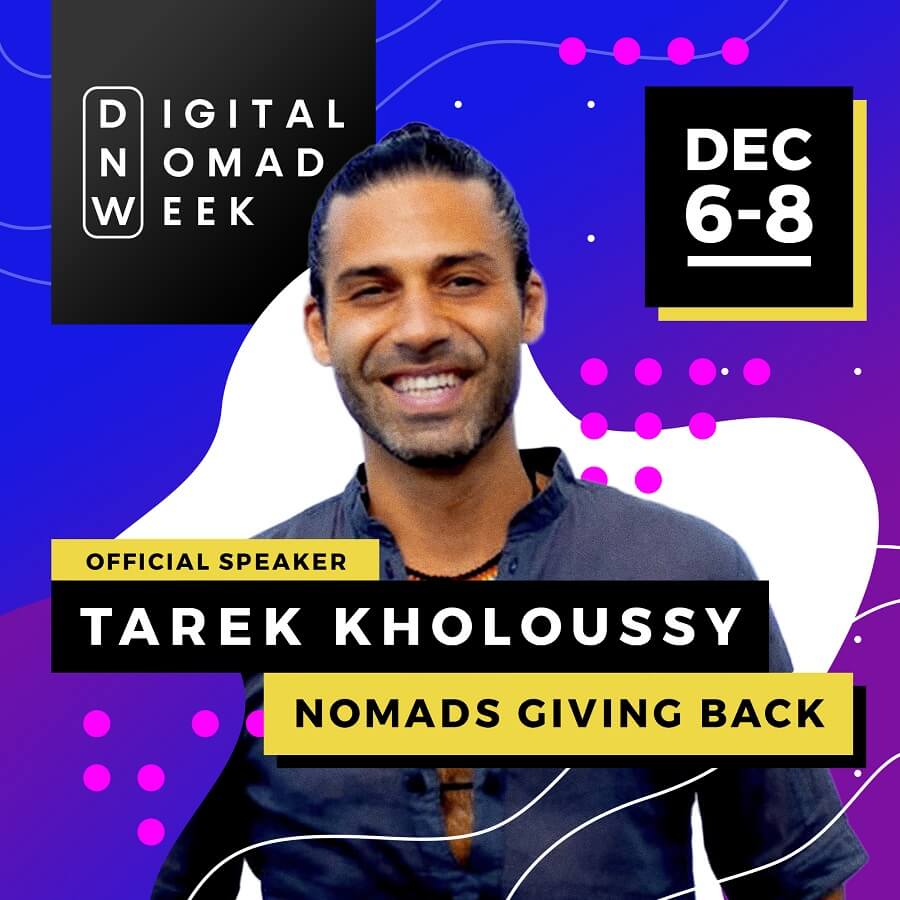
2. How does DNW rate on the nomad conference/festival calendar in your opinion in terms of size/importance?
DNW is among the most popular and well known nomad conferences around. This is a wonderful opportunity to share about our impact mission and inspire the nomad movement to share their skills and give back to local communities. Our team and I are excited to see many of the leading voices in the movement are coming together for this special conference!
3. You have a great project called Nomads Giving Back/ Nomad Skillshare. Tell us a little about that, including a couple of concrete examples of success.
At Nomads Giving Back, we’re a community of socially-conscious global citizens who inspire you to give back to the communities you call home away from home. We do this through various advocacy, fundraising and volunteering programs.
At Nomads Skillshare, we’re a community of nomads, remote workers and global citizens who empower you to learn the skills to live the life you imagined!
Our growing team of more than 100 global citizens has already led more than 120 events, panel discussions, masterminds, impact trips, language skillshares, masterclasses, workshops and courses with thousands of attendees. And we’re actively growing our online communities of thousands more at www.nomadsgivingback.com and www.nomadsskillshare.com where socially-conscious global citizens around the world can connect and learn!
Recently, we launched our courses where students learn professional skills to gain online jobs while offering scholarships for less fortunate people to benefit as well. We’re proud that our recent one-month course, sponsored through our scholarship fund, on “How to Get Your Dream Online Job” empowered our Indonesian students with the skills and knowledge to get better jobs! And this month, we’re launching two new courses on “How to Become a Social Media Manager” and “How to Become a Virtual Assistant.”
(Bali Impact Adventure, 2019)
4. The pandemic put an increased focus on the potential of remote work, but the trend has been building for some time. Where do you think all this will be in 5 years?
I’ve had the opportunity to work remotely for more than a dozen years of my twenty-year career - both as a corporate leader as well as a social entrepreneurial nomad. Since beginning my nomad journey nearly a decade ago, I’ve believed that the nomad movement was going to grow fast. And now, we all know that the pandemic has accelerated the adoption of remote work resulting in rapid exponential growth.
The two macro forces that were holding back this movement from growing faster have been governments and big businesses. Nowadays, we’re witnessing a sea change from the perspective of both. Now, Governments are welcoming more foreigners to work remotely and even competing for talent. In just the past year or two, more than 25 countries have introduced new types of visas for remote workers. And now, big businesses are welcoming more openly the new dynamic of working outside the office. Some large employers are now saying: “There’s no office to come back to!” So with these two macro forces now endorsing remote work more than ever before, I wouldn’t be surprised if the number of remote workers living abroad will grow 50-fold over the next five to ten years!
(Bali Impact Adventure, Language Skillshare - 2021)
5. Tell us about your DN experience in Croatia. What was good, and what does Croatia need to focus on to improve?
I visited Croatia a couple of times in 2009 to Hvar and 2017 to Zagreb and Dubrovnik, and really enjoyed both trips. I’ve had the opportunity to explore over 100 countries, and I can honestly say that Croatia is one of the most beautiful countries I’ve seen!
Nomads tend to gravitate to geographic locations that offer a higher quality of life for a lower cost of living. And Croatia definitely meets these major criteria, with so much to offer. Nomads also love places where there are opportunities to work easily, outlets such as coworking hubs working friendly cafes, as well as an attractive calendar and events where it's easy to meet people.
I’m optimistic that Croatia will continue to grow in numbers and popularity as a nomad destination. I look forward to visiting Croatia again, hopefully soon to experience more of this country’s special culture and amazing people!
(Dubrovnik, 2017)
6. You are installed as the Croatian Minister of Tourism. What are the next steps you would implement to develop Croatia's DN strategy?
If I became the Croatian Minister of Tourism, I would make similar recommendations to what I made to the government officials of Argentina who also are aiming to attract digital nomads.
Recently, I was invited to speak at a large conference called “Nomads BA” in Buenos Aires, Argentina. This is the first ever specialized digital nomad conference sponsored by the local government. And even though I’m not able to join, I’m very excited to see this new trend taking birth of governments endorsing the nomad movement and welcoming foreigners to live and work remotely in their countries.
For Croatia, I would encourage the adoption of a simple visa process welcoming digital nomads. From what I understand, a new type of visa has been introduced recently but it seems it has some limiting aspects compared to what some other nations are offering. The more flexible the terms and simple the process, the more nomads will be attracted to come and live longer stretches of time in Croatia.
(Župa Dubrovačka, Croatia - 2017)
Other ways that the government could factor into their strategy would be to sponsor a similar large conference as Argentina. I would also recommend building collaborations with the pioneers in the movement who already lead nomad communities or whose network and influence are strong.
The easier it is for a foreigner to gain residency and establish businesses legally, the more likely they will stay for years or make it a regular home base. This could also help Croatia by leading to more local jobs and greater tax revenue.
Well-coordinated programs and perks would be appealing, which could be supported through local co-working hubs and co-living accommodations.
Of course, a well-designed Public Relations outreach effort would be helpful. Connecting with influential news outlets, nomad bloggers and community leaders for mutually-beneficial cross-promotion opportunities.
And what is most important to me, aligned with our mission at Nomads Giving Back and Nomads Skillshare, is to advocate for ways that nomads can connect more with Croatians as well as share their skills and give back to local Croatian communities. The stronger the nomad’s local relationships, the deeper the nomad’s roots. And everyone benefits - the nomads and the Croatians.
To learn more about Nomads Giving Back, visit the official website. You can connect with Tarek Kholoussy via LinkedIn.
To get your ticket for Digital Nomad Week, check out the event website.
For more news and features about digital nomads in Croatia, follow the dedicated TCN section.
Meet the Digital Nomad Week Speakers: Alex Fasulo, The Freelance Fairy
November 3, 2021 - Just over a month until Digital Nomad Week, the virtual edition with 10,000 nomads expected to attend, and more than 100 speakers including TCN. Continuing our look at the keynote speakers, meet the very dynamic Alex Fasulo.
In 2015, Alex Fasulo quit her job with no plan, no money, and no idea what she was going to do with her life. She dove headfirst into freelancing platform, Fiverr, and have never looked back.
Today, her freelancing businesses generates 350k+ in income per year, and she is using her experience to show everyone what's possible online today.
1. You are a keynote speaker at Digital Nomad Week in December. Tell us a little about DNW, why you decided to get involved, and what you will be talking about.
DNW reached out to me in early 2021 to be one of the keynote speakers for their festival this year, and I could not say no! As a fulltime nomad myself who has been bouncing around while managing multiple businesses for over 7-years, it simply made sense.
The title of my talk is: How Digital Nomads Rewrote the Rules for Work Around the World. I will be discussing how digital nomads became prominent thought-leaders in a COVID-19 world as a group of individuals who had already made virtual working work for themselves.

2. How does DNW rate on the nomad conference/festival calendar in your opinion in terms of size/importance?
I consider it to be one of the most important of the year - the roster of speakers they have gathered pretty much includes every single digital nomad driving conversation today. I am very excited to be part of it!
3. Reading your About page on your website is quite breathtaking. You seem to be doing about 400 jobs at the same time. How many hours a day do you work? And do you sleep?
I do sleep - sort of! I am a bad sleeper. I have been able to function on 5-hours of sleep or so since I was little- my mind never turns off.
I do admit I am bad at turning down opportunities - it's what it's all about to me. I work anywhere from 20-60 hours per week - depends the season! I do have a team now that includes my best friend and about 5 other independent contractors. I am NOT doing this alone anymore.
4. Your story and success are an inspiration to those who want to break the normal work cycle. What are the main pieces of advice you give to people wanting to make the leap but afraid to do so.
I would say to them: you only get one life. It's not meant to be miserable. Take a risk - it pays off. And it's not even a risk today! You can get started freelancing, for example, and it costs you NOTHING! In the past, people had to take out 50k business loans to work for themselves. You can start working on your own, for free. Do it, you won't regret it.
5. The pandemic put an increased focus on the potential of remote work, but the trend has been building for some time. Where do you think all this will be in 5 years?
I think every industry will be 100% remote. I understand industries like medical need some kind of medical location to function - but with telemedicine on the rise, I think we can virtualize just about every industry except for those few industries when we need to see someone in person. Remote work works for everyone... people are happier, more productive (studies have proven this), and they can travel all over. To be human is to travel and go outside, in my opinion.
6. I would like to ask you about Croatia, as that is my primary focus. I understand you have not visited yet, but it is on the list. When did Croatia first come on your radar as a DN destination?
It came onto my list in 2015 because of... Game of Thrones haha!!! I am a HUGEEE GOT nerd and have wanted to visit Croatia ever since the show came out. I actually went to North Ireland in 2018 specifically because of GOT. Of course, I know Croatia is also an incredible country with breathtaking views and robust history - I LOVE learning about history.
7. What is the perception of Croatia as a DN destination, and has it changed in the last 12 months? If yes, in what way?
I know Croatia is an affordable destination, which makes it an obvious DN spot. Nomads tend to live in places where they can save money or spend frugally so they don't have to worry about working 10+ hour days. The lifestyle is just as much as the job as a DN.
8. You are installed as the Croatian Minister of Tourism. What are the next steps you would implement to develop Croatia's DN strategy?
I would
1) Prioritize tax/business breaks and loopholes that make it easier for foreign nationals to extend their stay and operate their businesses from Croatia.
2) Launch short-term programs that provide incentives, like tax-free beverages (haha), to DNs for their first three-months in Croatia.
3) Spend lots of time on futuristic marketing using platforms like Reddit and TikTok to reach younger generations about the potential and history of Croatia.
You can learn more about Alex Fasulo on her official website.
To get your ticket for Digital Nomad Week, check out the event website.
For more news and features about digital nomads in Croatia, follow the dedicated TCN section.
Digital Nomad Week Keynote Nomadic Matt Talks Destination Croatia
October 31, 2021 - With 5 weeks to go until Digital Nomad Week, TCN continues its series interviewing the keynote speakers. Next up Matt Kepnes, aka Nomadic Matt, who recently visited Croatia.
I am really looking forward to speaking at Digital Nomad Week which starts on December 6. It is a great chance to share all the exciting progress taking place in the DN scene in Croatia. Of course, I am a complete unknown on the global nomad scene, so it helps when one of the most recognisble DN personalities happens to be speaking at the same conference.
And happened to think that Croatia is also pretty cool, even more so after a recent visit.
Nomadic Matt has been a nomad for some time and built a very successful business helping others travel more for less. A New York Times best-selling author of How to Travel the World on $50 a Day, as well as Ten Years a Nomad, it is safe to say that Nomadic Matt knows a thing or two about the remote work lifestyle. He kindly agreed to an email interview to share his thoughts predominantly about Croatia.
1. Digital nomad is a fairly recent buzzword that is catching on globally. You have been at this some time, and have written a book about your first nomadic decade, Ten Years a Nomad. How was being a nomad back then compared to today?
Being a nomad when I started traveling was much, much different than being a nomad today — for better and for worse. When I started, we could only communicate via Internat cafes so you had to rely on guidebooks and actually talk to people to learn new information.
Today, it's much easier thanks to the internet, apps like Google Maps and Google Translate, and sharing economy apps that can connect you to locals. There are significantly more cheap flights these days too. Those all open up so many new opportunities and make travel much more accessible (which is a big plus).
However, there are also lots of pitfalls. Travelers are all too often just sitting on their phones, ignoring the local culture around them in favor of connecting with people back home. People plan whirlwind trips to snap photos for the 'gram instead of actually soaking in each destination.
So things are better in many ways, but there are also a few pitfalls where we could improve as a community.
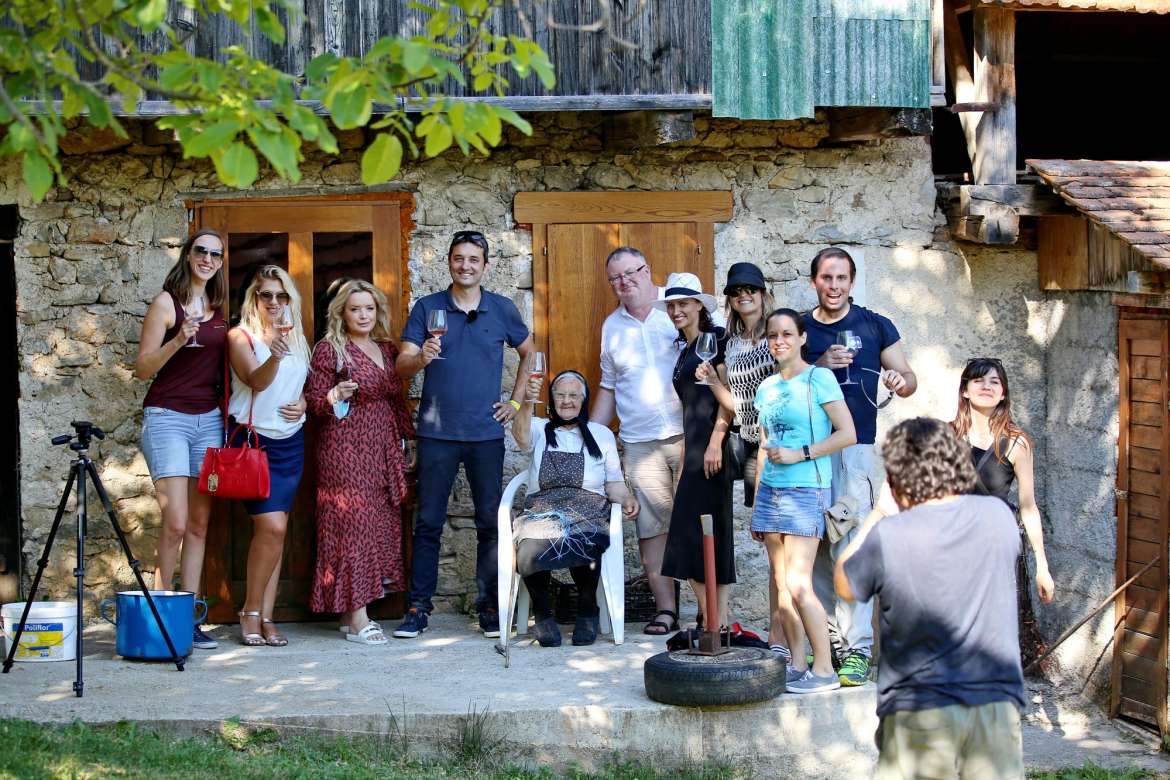
2. You recently visited Croatia and wrote an excellent article called Croatia is Underappreciated. Tell us in a couple of sentences why you think that?
Croatia is one of those destinations that sees a HUGE amount of tourists...but only to a few spots. So, while areas around Dubrovnik and Split might be super busy in the summer, once you get away from the coast, the country is virtually untouched.
We see this happen in lots of countries, as tourists tend to stick to the main highlights and rarely venture off the beaten path. Iceland and Thailand are two popular countries that also struggle with this same phenomenon. Which is all the more reason to get off the beaten path and explore away from the crowds!
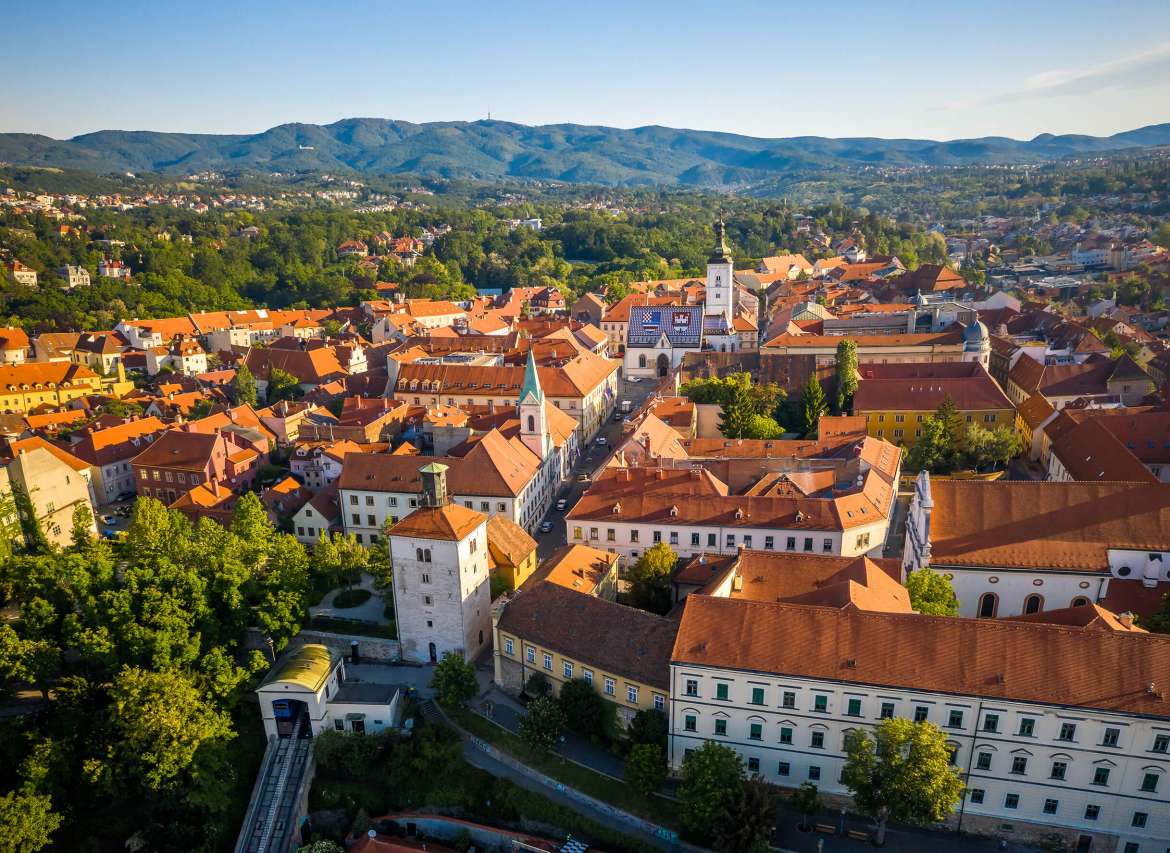
(Photo credit Zagreb Tourist Board)
3. You are an experienced traveller with great insights into the global DN scene. When did Croatia first come on your radar as a nomad destination, and how do you assess Croatia's progress in becoming more attractive to nomads over the last 12 months?
Croatia has actually been on my radar for a while. It's a hub for cheap flights, wild parties, and gorgeous weather — all of which are huge magnets to long-term travelers and digital nomads! But it wasn't until I recently re-visited the country that it really sank in just how great it is for digital nomads. Once I got back on the ground and got away from the coast, I was much more able to appreciate the pros of being a digital nomad here. I think it's only going to continue to grow and attract digital nomads.
4. A lot of nomads who came to Zagreb Digital Nomad Week were surprised at how much they liked the city and just how digital nomad-friendly it was. Indeed, keynote speaker Dean Kuchel said the only thing missing was more digital nomads. What was your impression of Zagreb from a DN perspective?
I loved Zagreb. It's an underrated city overshadowed by places like Dubrovnik and Split. While it may not have those stunning Dalmatian Coast views, the city has a lot to offer. It's fun, has excellent museums, it's way more affordable than Dubrovnik, and it's right next door to the most unexplored parts of the country. I think it makes for an excellent base for Digital Nomads (and it's also just a great destination to visit for regular travelers).
5. What are Croatia's comparative advantages in attracting digital nomads, and what are its weaknesses?
I think the main advantage in Croatia is the cost of living. Once you get away from the expensive coast, prices drop drastically. That's a huge advantage when competing for digital nomads. The country is also easy to navigate and has a reliable network of buses and ferries to get you anywhere you need to go on a budget, and there is an abundance of nature to see and explore whenever you need to get away from the computer.
You're also just a quick bus, train, or flight to elsewhere in Europe (and flights to/from here can be super cheap).
The downside is that prices are high (and rising) in the main tourist areas, and they get swamped by crowds so you can't really settle into nomad life there as you'd be shoulder to shoulder with visitors all summer. Fortunately, those tourist crowds are easy to escape!
6. You are temporarily installed as the Croatian Minister of Tourism with a brief to develop Croatia's DN strategy. What are the key next steps?
I would try to pivot tourism on the Dalmatian Coast to be more sustainable. I think limiting the number of cruises would be a huge start on that front. Cracking down on Airbnb would also help.
I'd also try to market other national parks/nature reserves to ease the number of visitors who crowd places like Krka and Plitvice Parks. Tons of tourists visit those places but skip much of the other nature. I think spreading those crowds out would improve the experience at those parks and also ensure they are around for future generations.
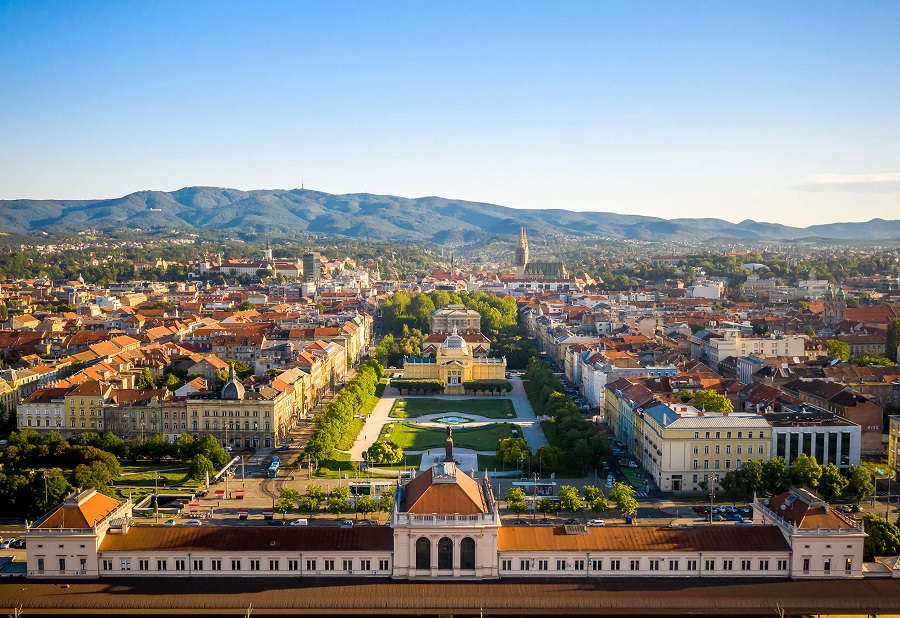
(Photo credit J. Duval/Zagreb Tourist Board)
7. And finally, what and where next for Nomadic Matt?
I'm actually in Oaxaca, Mexico right now, and I'll be heading to Brazil at the end of the year for New Year's. After that, who knows where I'll end up. That's the joy of being a digital nomad!
For more details about Digital Nomad Week, which kicks off on December 6, visit the official website.
For more news and features about digital nomads in Croatia, follow the dedicated TCN section.


